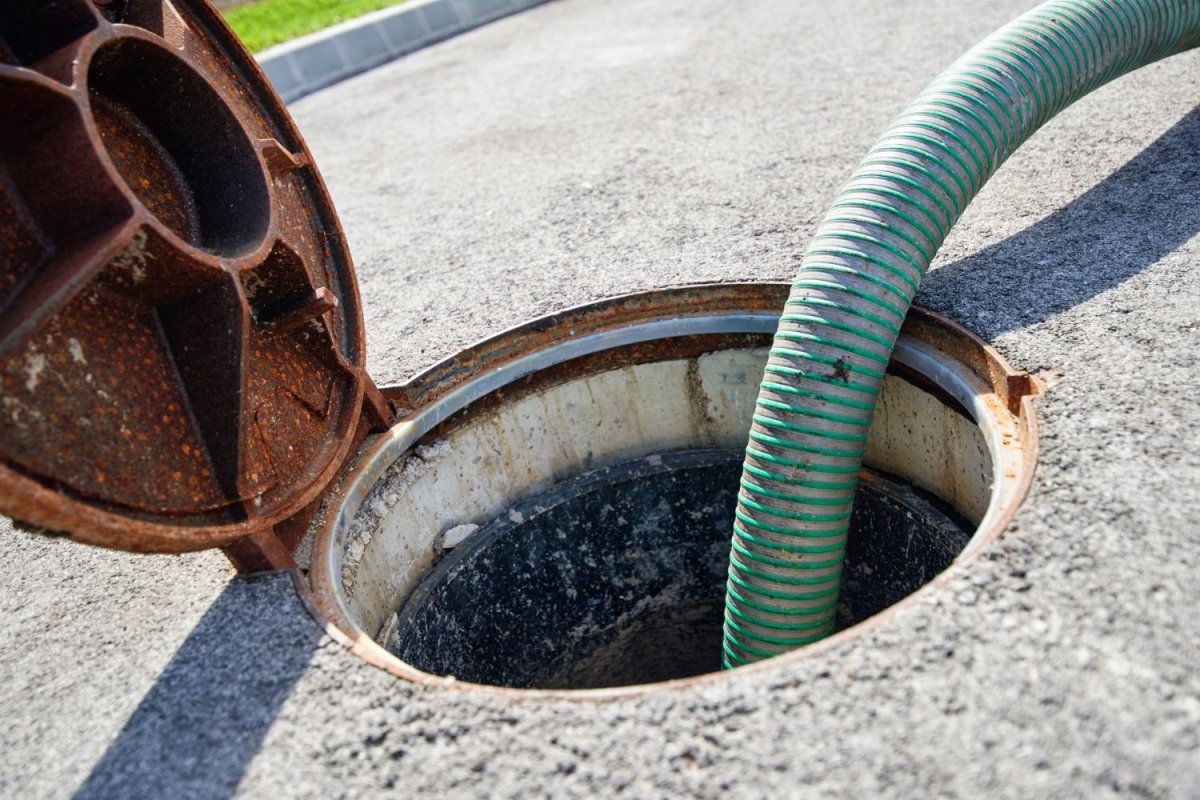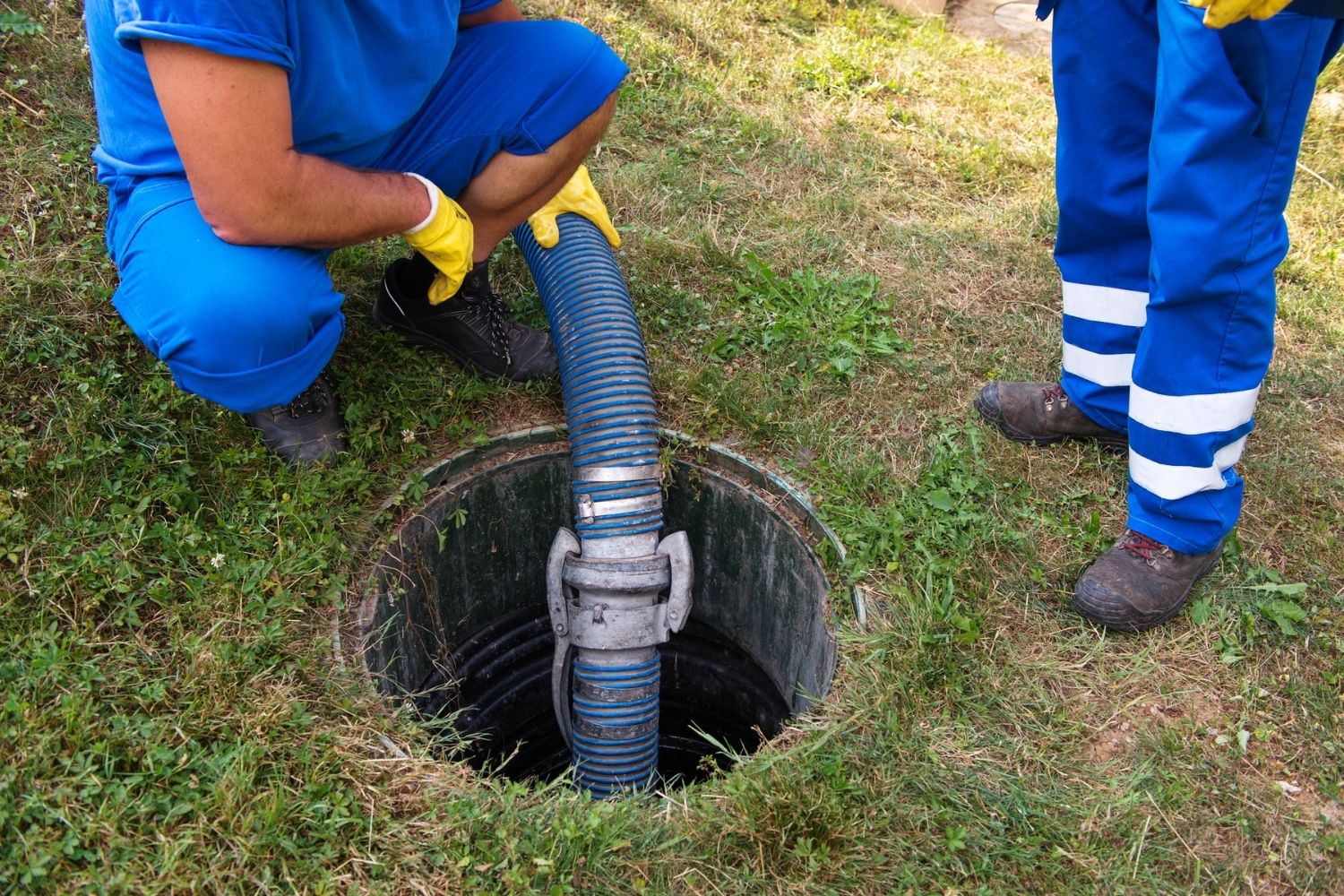

We may earn revenue from the products available on this page and participate in affiliate programs. Learn More ›
Q: I recently bought a new house, and it has a septic system. I don’t have any experience with septic tanks, and I’m not sure how often it needs to be emptied and cleaned. How often should you get your septic tank pumped?
A: As a general rule, a septic tank should be pumped and emptied every 3 to 5 years. Homes outside a city may rely on septic tanks since they don’t have access to city sewer lines. A septic system is an environmentally friendly, safe, and natural way to manage household waste. With proper care, maintenance, and septic tank pumping, a septic tank system can last for decades. When a home has a septic system, wastewater leaves the house and enters the tank, where it separates solids, liquid waste (called effluent), and scum. Since the solids (or sludge) are heavier, they will settle to the bottom, where bacteria and microorganisms will consume and dissolve them. The scum, made up of oils, fats, and grease, is lighter and will float to the top. The watery effluent middle layer will exit the tank by traveling via perforated underground pipes to a drainage or leach field. Gravel, rocks, and soil act as a filtration system to purify the water as it returns to the groundwater system. Over time, too much sludge will reduce the bacteria’s ability to break down the waste or overflow into the drainage field. That’s why septic tank cleaning is essential. So how often should you get your septic tank pumped? Here are a few considerations to keep in mind when determining how often your septic tank should be emptied.
First, keep in mind the size of your septic tank.
Most septic tanks are between 1,000 and 2,000 gallons in size. If you’re not exactly sure how big your septic tank is, a professional from a septic tank cleaning company can inspect it to determine the size. The size of the tank is one determining factor regarding how often it should be pumped. For example, for a family of four with a 1,000-gallon tank, it’s recommended that it be pumped every 2.6 years, but for a 1,500-gallon tank, the time can be extended to 4.2 years and up to 5 years for a 2,000-gallon tank.
Your house size and number of household members will affect how often the septic tank needs to be pumped.
The size of the home will determine the size of the septic tank. A 3-bedroom home will need a larger-size tank than a 2-bedroom home would need. An excellent source of information can be your neighbors. Consider talking to them and asking about their septic tank size compared to how many people live in their homes. You will get a better idea of how often to schedule septic tank pumping for your system. Typically, more people living in a home will produce more waste, affecting the frequency of septic tank cleaning. The types of soaps, cleaners, and chemicals that you use in your home and how often they go down the drain are also factors that influence the timing of septic pumping.

Consider the total wastewater generated, including laundry, dishwashing, and showers.
According to the Environmental Protection Agency (EPA), each person uses 70 gallons of water per day. Efficient water usage will lengthen the life of a septic system and reduce the risk of clogging, backing up, and leaking.
Selecting the correct load size on the washing machine and doing laundry only when you have a full load will help regulate how much water goes down the drain. It’s beneficial to spread out washing machine use throughout the week instead of doing multiple loads in one day. Running the washing machine excessively in one day can damage a septic system by not allowing enough time for the waste to be treated and increasing the possibility of flooding the drainage field. You can help maintain your septic tank by using biodegradable soaps throughout your home, buying an energy-efficient washing machine that uses less water, and installing a filter to catch synthetic fibers that the septic tank bacteria cannot digest.
When it comes to the kitchen sink, it’s strongly recommended never to use a garbage disposal if you have a septic tank. The disposal will not break down the food small enough to pass through the septic tank filter. Using a disposal will increase the amount of solids by up to 50 percent, and you will risk clogging the system and causing it to back up. Other ways to help out the septic tank is to take shorter showers and install reduced-flow shower heads or shower flow restrictors to reduce the volume of water going into the septic system.
Generally, a septic tank should be pumped every 3 to 5 years.
Maintaining a septic tank system isn’t all that expensive, but it’s definitely more costly to dig up and repair or replace a system that has failed due to neglect. Some septic systems may need to be pumped once a year depending on the tank size, number of people in the household, and amount of wastewater produced. Other systems may be able to wait 5 years between each septic pumping. On average, it’s recommended that you call in a professional every 3 to 5 years to maintain the life of your septic system. The frequency with which the tank needs to be cleaned depends on the level of waste in the tank and not a specific time frame. Search online for “septic tank pumping near me” to find a professional to help maintain and extend the life of your septic system.
